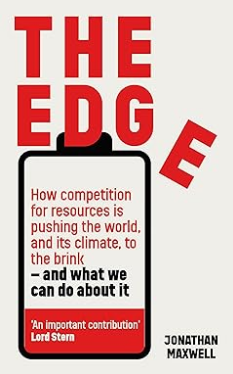 ● Poor Charlie’s Almanack: The Essential Wit and Wisdom of Charles T. Munger (revised ed.)
● Poor Charlie’s Almanack: The Essential Wit and Wisdom of Charles T. Munger (revised ed.)
Edited by Peter D. Kaufman
Summary via publisher (Stripe Press)
“Spend each day trying to be a little wiser than you were when you woke up,” Charlie Munger advises in Poor Charlie’s Almanack. Originally published in 2005, this compilation of 11 talks by the legendary Berkshire Hathaway vice-chairman has become a touchstone for a generation of investors and entrepreneurs. Delivered with Munger’s characteristic rhetorical flair, Poor Charlie’s Almanack draws on his encyclopedic knowledge of business, finance, history, philosophy, physics, and ethics to introduce the latticework of mental models that underpin his rational and rigorous approach to life, learning, and decision-making. It is an essential volume for any reader seeking to go to bed a little wiser than when they woke up. This abridged edition features a new foreword by Stripe cofounder and president John Collison.
 ● As Gods Among Men: A History of the Rich in the West
● As Gods Among Men: A History of the Rich in the West
Guido Alfani
Summary via publisher (Princeton U. Press)
The rich have always fascinated, sometimes in problematic ways. Medieval thinkers feared that the super-rich would act ‘as gods among men’; much more recently Thomas Piketty made wealth central to discussions of inequality. In this book, Guido Alfani offers a history of the rich and super-rich in the West, examining who they were, how they accumulated their wealth and what role they played in society. Covering the last thousand years, with frequent incursions into antiquity, and integrating recent research on economic inequality, Alfani finds—despite the different paths to wealth in different eras—fundamental continuities in the behaviour of the rich and public attitudes towards wealth across Western history. His account offers a novel perspective on current debates about wealth and income disparity.
 ● The Edge: How competition for resources is pushing the world, and its climate, to the brink – and what we can do about it
● The Edge: How competition for resources is pushing the world, and its climate, to the brink – and what we can do about it
Jonathan Maxwell
Summary via publisher (Nicholas Brealey/John Murray Press)
Why did Russia invade Ukraine? Why have energy costs and inflation been so high? Why is there is there a cost-of-living crisis? Why does the climate crisis keep getting worse? What causes conflict, socio-economic crises, and climate change and what can you do about it, for your family, your business, and your country?
Global events, however long their origins, too often seem out of our control and suddenly to transform the world around us. If we want stability, we need to understand the causes, the scale of the challenges, and how we can deliver big enough solutions in time. So many crises are caused by the same problem: competition for coveted resources. The amount of these same resources that we waste is shocking and the impact devastating. Which is why every society, organisation, business, household, and individual must put efficiency first – not just to save money and carbon and improve resilience, but to mitigate and avoid both conflict and climate change.
 ● Wreckonomics: Why It’s Time to End the War on Everything
● Wreckonomics: Why It’s Time to End the War on Everything
Ruben Andersson and David Keen
Review via The Guardian
The human and financial cost of these wars, which are not limited to armed conflicts, is the subject of a new book by Ruben Andersson, a professor of social anthropology at Oxford, and David Keen, a professor of conflict studies at the London School of Economics. Wreckonomics is a deeply-researched and wide-ranging account of how, despite manifest failings, the wars on terror, drugs and migration are entrenched in Western policy as a kind of perma-crisis for which its principal architects are never held responsible.
Please note that the links to books above are affiliate links with Amazon.com and James Picerno (a.k.a. The Capital Spectator) earns money if you buy one of the titles listed. Also note that you will not pay extra for a book even though it generates revenue for The Capital Spectator. By purchasing books through this site, you provide support for The Capital Spectator’s free content. Thank you!